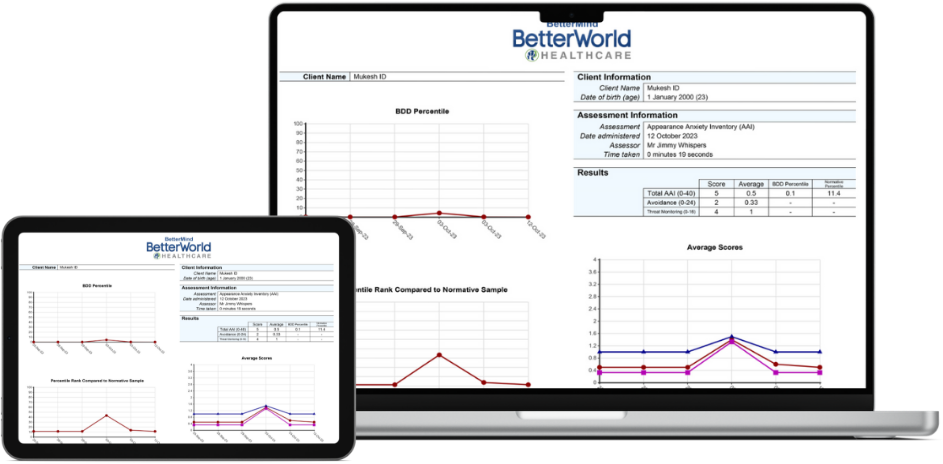Multidimensional Assessment of Interoceptive Awareness – Youth Version (MAIA-Y)
Assessments
Description
The Multidimensional Assessment of Interoceptive Awareness – Youth Version (MAIA-Y) is an 8-scale state-trait questionnaire with 32 items to measure multiple dimensions of interoception (body awareness). The MAIA-Y is suitable for use with youths between 7 – 17 years of age. There is a parallel adult version (MAIA-2) for use with individuals 18+ years of age. Interoception refers to the sensation, interpretation, and integration of internal somatic signals (Eggart et al., 2021). There is compelling evidence demonstrating links between poor interoceptive awareness and difficulties with emotion regulation (Price & Hooven, 2018). Therefore, it can be beneficial to measure interoception in a therapeutic setting because effective emotion regulation involves the ability to accurately detect and evaluate cues related to physiological reactions to stressful events. The therapist and client can then work together on appropriate regulation strategies that temper and influence the emotional response. The MAIA consists of 8 scales (addressing 5 dimensions of body awareness): Noticing (Awareness of Body Sensations) Not-Distracting (Emotional Reaction and Attentional Response to Sensations) Not-Worrying (Emotional Reaction and Attentional Response to Sensations) Attention Regulation (Capacity to Regulate Attention) Emotional Awareness (Awareness of Mind-Body Integration) Self-Regulation (Awareness of Mind-Body Integration) Body Listening (Awareness of Mind-Body Integration) Trust (Trusting Body Sensations)
Validity and Reliability
Interpretation
The results from the MAIA-Y focuses upon the individual scale scores (between 0 and 5), where higher score equates to more awareness of bodily sensation. A percentile is also calculated, indicating how the responded scored in comparison to an age related normative sample. Interpretation using percentiles helps contextualise scores. For example, percentile below 50 indicate that the individual scored below what is typical. Extreme percentile scores (below 10 or above 90) are of particular clinical significance. The MAIA consists of eight scales: 1. Noticing (Items 1-4): Awareness of uncomfortable, comfortable, and neutral body sensations 2. Not-Distracting (Items 5-7): Higher scores suggest a more tuned in relationship to unpleasant sensations, and is typically considered to be adaptive. Lower scores indicate the tendency to ignore or distract oneself from sensations of pain or discomfort.Not-Worrying (Items 8-10): Emotional distress or worry with sensations of pain or discomfort 3. Not-Worrying (Items 8-10): Higher scores indicate less rumination about discomfort. Low scores indicate emotional distress or worry with sensations of pain or discomfort 4. Attention Regulation (Items 11-17): Ability to sustain and control attention to body sensation 5. Emotional Awareness (Items 18-22): Awareness of the connection between body sensations and emotional states 6. Self-Regulation (Items 23-26): Ability to regulate psychological distress by attention to body sensations 7. Body Listening (Items 27-29): Actively listens to the body for insight 8. Trust (Items 30-32): Experiences one’s body as safe and trustworthy
Developer
Jones, A., Silas, J., Todd, J., Stewart, A., Acree, M., Coulson, M., & Mehling, W. E. (2021). Exploring the Multidimensional Assessment of Interoceptive Awareness in youth aged 7-17 years. Journal of Clinical Psychology, 77(3), 661–682. https://doi.org/10.1002/jclp.23067
Number Of Questions
32
References
Eggart, M., Todd, J., & Valdés-Stauber, J. (2021). Validation of the Multidimensional Assessment of Interoceptive Awareness (MAIA-2) questionnaire in hospitalized patients with major depressive disorder. PloS One, 16(6), e0253913. https://doi.org/10.1371/journal.pone.0253913 Mehling, W. E., Price, C., Daubenmier, J. J., Acree, M., Bartmess, E., & Stewart, A. (2012). The Multidimensional Assessment of Interoceptive Awareness (MAIA). PloS One, 7(11), e48230. https://doi.org/10.1371/journal.pone.0048230 Price, C. J., & Hooven, C. (2018). Interoceptive Awareness Skills for Emotion Regulation: Theory and Approach of Mindful Awareness in Body-Oriented Therapy (MABT). Frontiers in psychology, 9, 798. https://doi.org/10.3389/fpsyg.2018.00798
Try it and see how BetterMind can enhance your practice

Support
Frequently Asked Questions
You’ve got questions, we’ve got answers. Below you can find answers to some of the most frequently asked questions. If you can’t find the answer you’re looking for, please feel free to reach out to us at info@betterworldhealthcare.com.
I can’t open test results within the Web Browser
Assessment result PDFs are opened in a new tab within the web browser. If you click the results but they do not open, your browser will be blocking the popup. To resolve this, after you have pressed the test result, look out for an alert at the top of your browser notifying you that a pop-up has been blocked, then click "Allow".
I have forgotten my password. How can I reset it?
If you have forgotten your password please press “forgot password” within the app, or on the Web Browser App login page (https://app.bettermind-app.com/login). You will receive a new temporary password via email.
Can a Practitioner access BetterMind from their Smartphone?
No, A Client /Patient can answer assessment questions on a smartphone but the Practitioners/ Users can't administer BetterMind using a Smartphone. A computer, laptop or tablet will have to be used.


